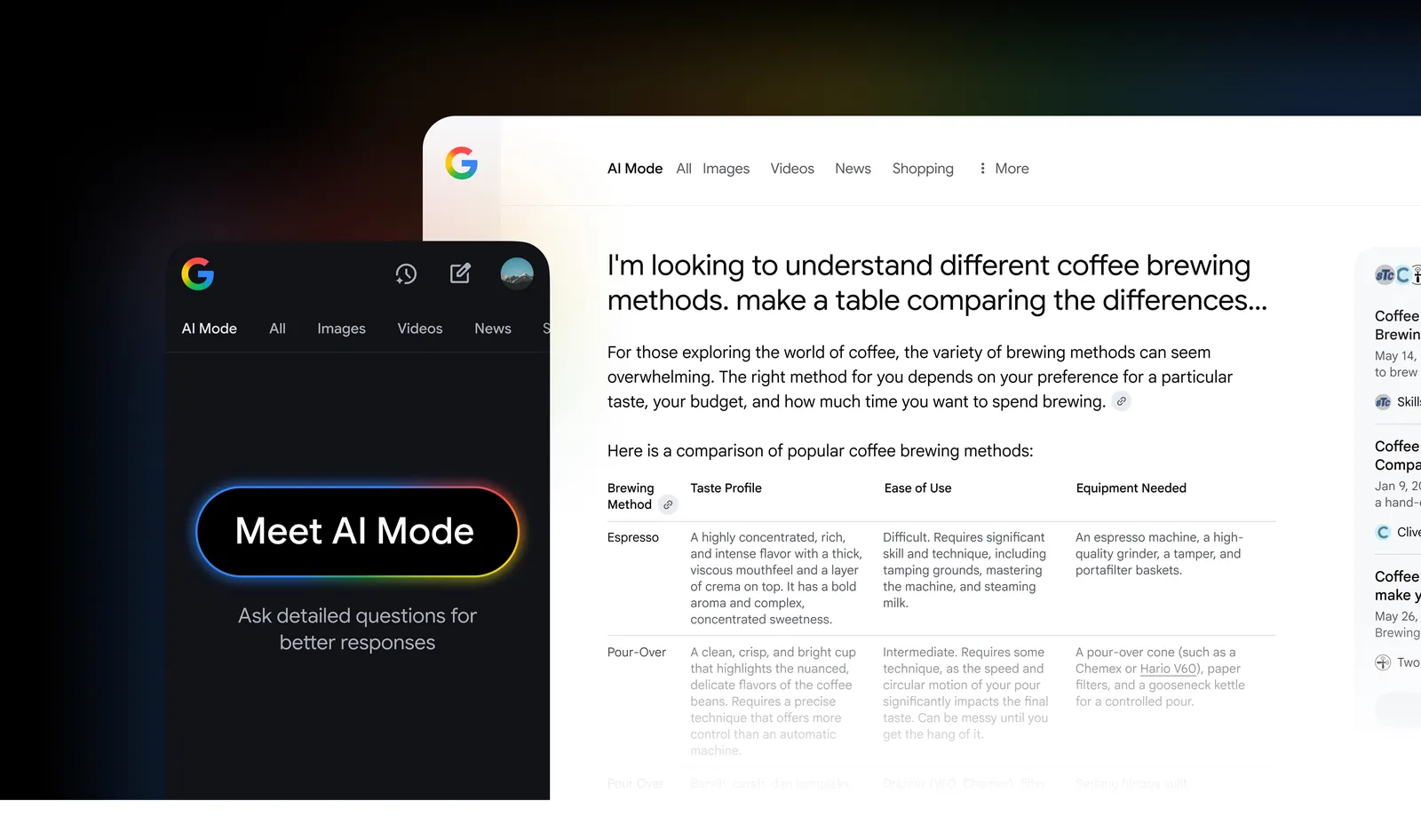Google has rolled out AI Mode in Australia this week, marking a major shift in how Australians use the search engine. This new feature, based on a custom version of Google’s Gemini 2.5 model, allows users to ask longer, more complex questions in a more natural way.
“AI Mode lets you ask longer, more complex questions that would have previously required multiple searches,” explains Hema Budaraju, Google’s vice president of product management. Early users are already asking questions nearly three times longer than typical searches.
The technology uses what Google calls a “query fan-out” technique that breaks questions into subtopics, running multiple searches simultaneously to deliver more comprehensive answers. Users can ask follow-up questions naturally, and even search using voice or images.
For example, someone could ask, “Create a walkable itinerary in Melbourne for specialty coffee shops, art galleries and street art,” and then follow up with questions about food options along the route.
While Google promotes the benefits, there are concerns about accuracy and impacts on publishers. University of Sunshine Coast computer science senior lecturer Erica Mealy cautions users to remain skeptical, particularly for important topics. “As long as we’re clear that it’s an AI overview and we keep our sense of skepticism about it… it could be helpful,” she says, recommending AI Mode for “low-stakes” questions rather than health or financial advice.
Publishers are worried about declining web traffic. ABC analysis shows some Australian news sites have seen search traffic drop by up to 35% since AI Overviews began appearing in search results last year. Google maintains that overall traffic remains “stable” and claims clicks from AI features are of “higher quality.”
More posts
The launch comes amid growing competition from OpenAI and Perplexity, which have both introduced AI-powered browsers in recent months. Australia joins over 40 other countries receiving AI Mode this week, which Google describes as its “most powerful AI search experience yet.”
For users wanting to try it, AI Mode appears as a tab next to regular search, making it optional while still providing links to explore topics further.
This expansion follows Google’s initial testing in the US and India, where the company claims the feature has been “resonating with people who appreciate its speed, quality, and fresh responses.”
Some industry analysts are watching closely to see how AI Mode affects the digital landscape. Search engines are shifting from simply providing lists of links to offering direct answers, a change that has significant implications for how information is discovered online.
Google’s parent company Alphabet relies heavily on search-related revenue, with total annual revenue exceeding $300 billion in 2024. This makes even small changes to Google Search extremely important to the company’s business model.
The electricity usage of AI features has also raised questions. Google has stated that the energy impact of a median text-based Gemini query is equivalent to “watching TV for less than nine seconds,” though the specific energy requirements for AI Mode compared to traditional search remain unclear.
As AI continues to transform search, users, publishers and technology companies are all adapting to this new reality where asking complex questions and receiving comprehensive answers is becoming the standard way of finding information online.







